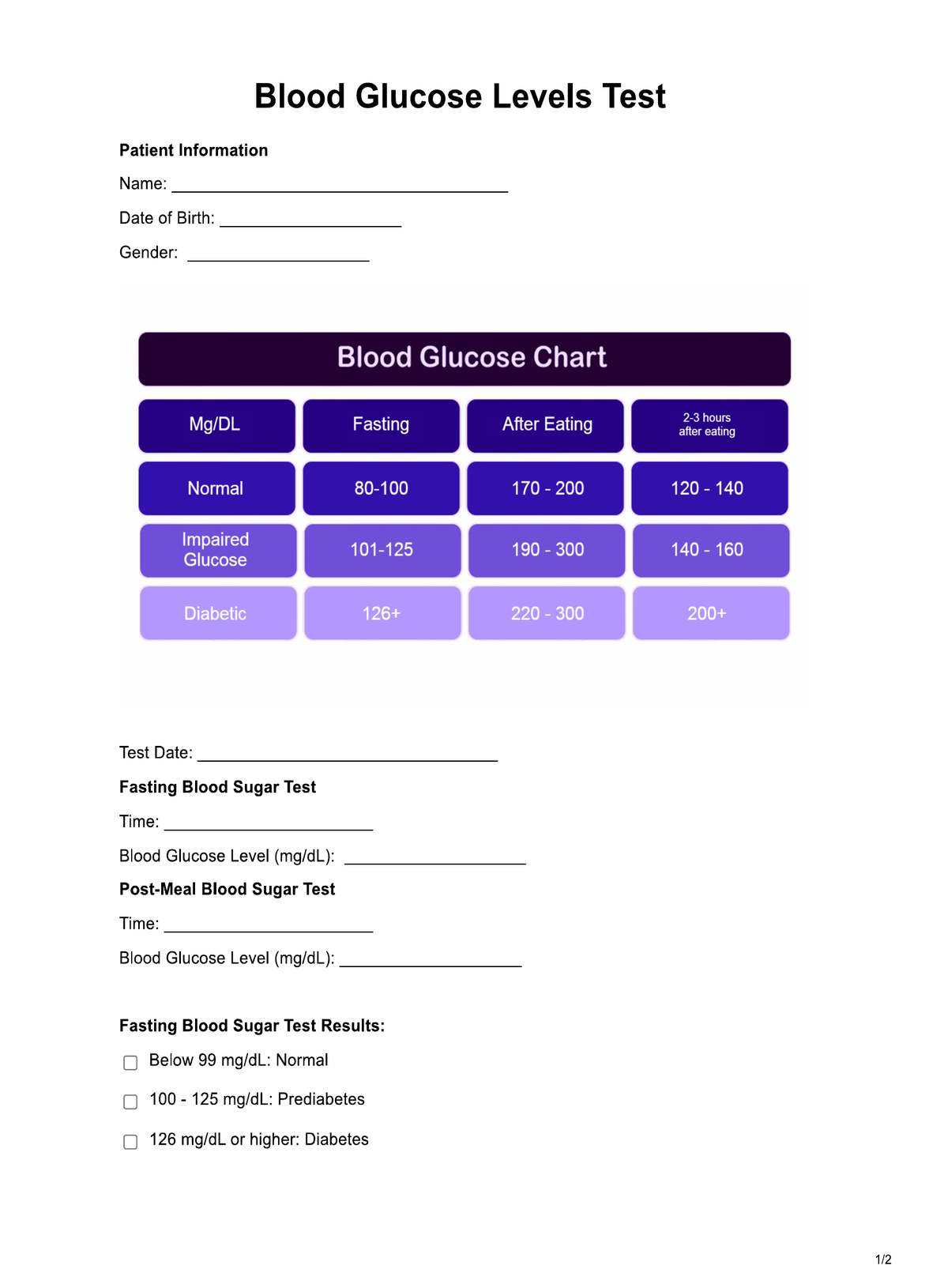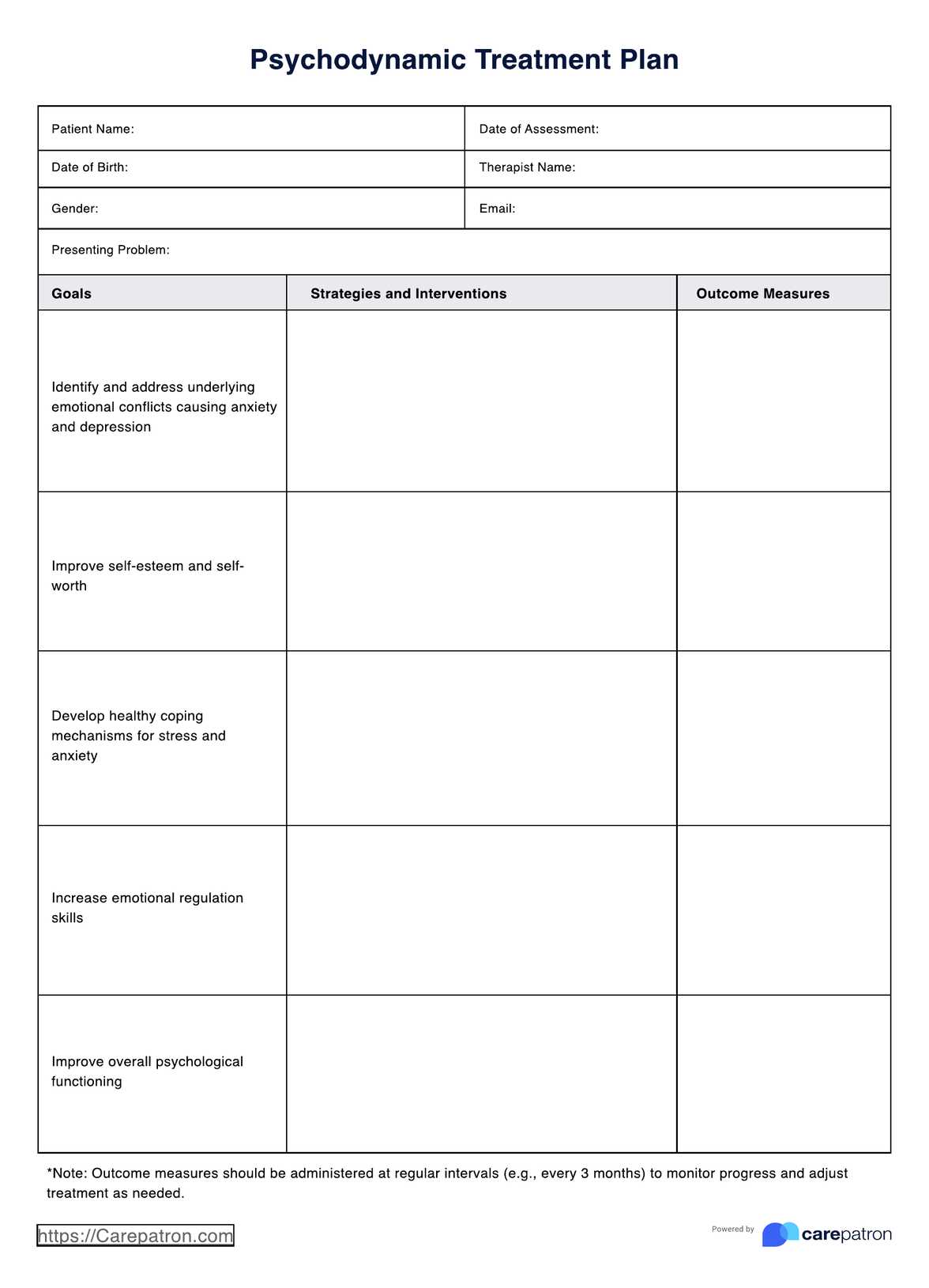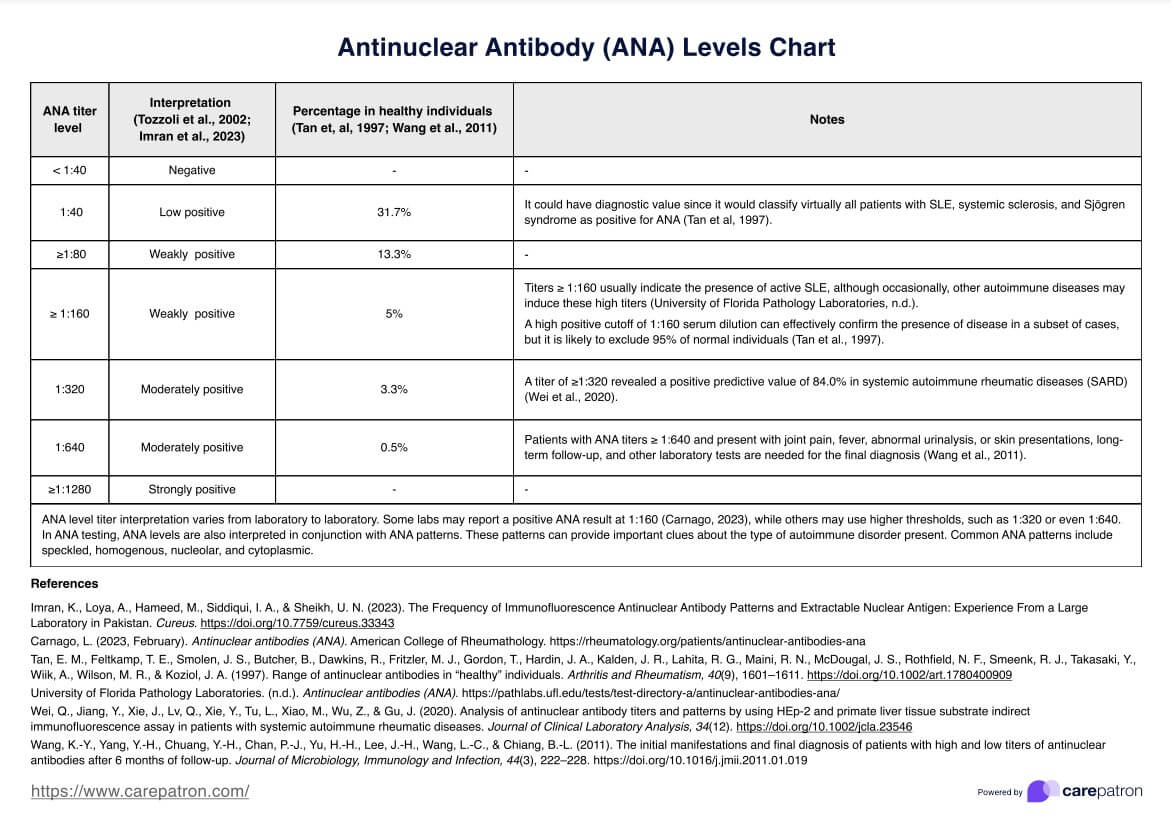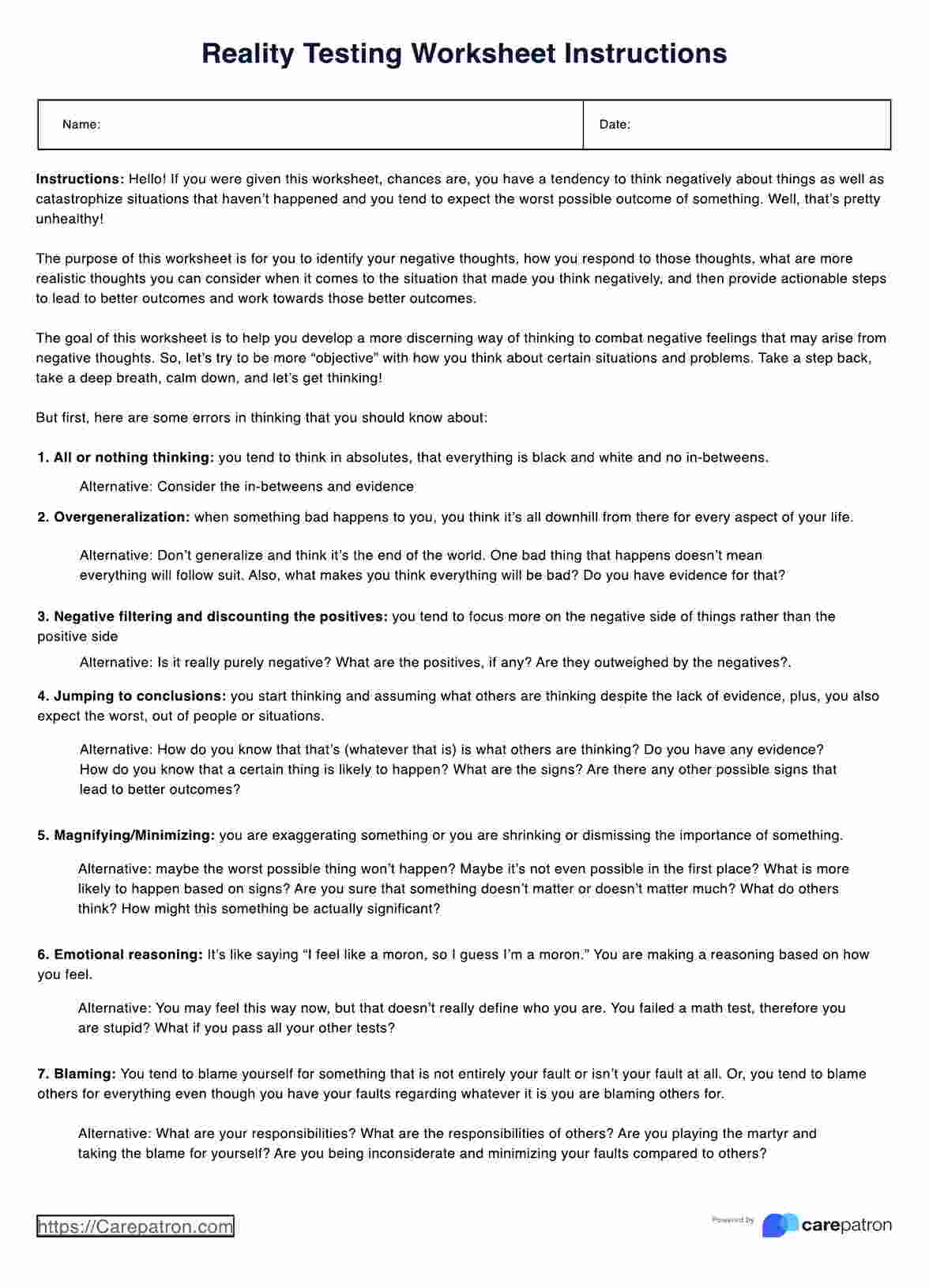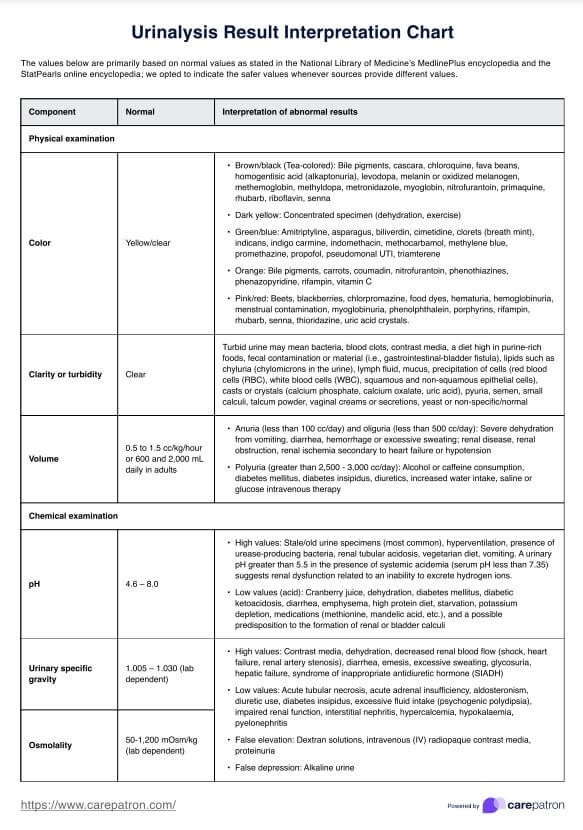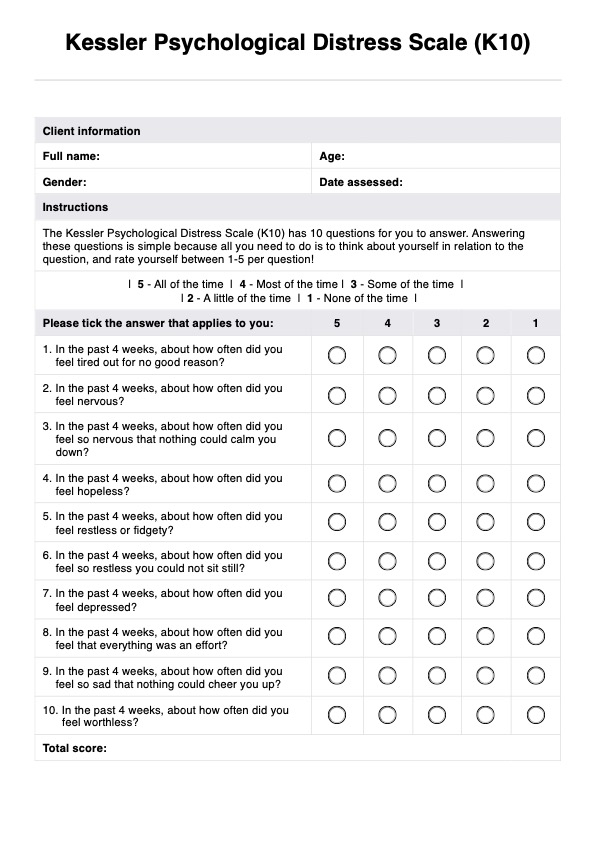Psychophysiological Assessment
Explore Psychophysiological Assessments with our free template. Understand the link between mental processes and physical responses. Download now.


What is a Psychophysiological Assessment?
A Psychophysiological Assessment is an intricate process that delves into the dynamic interplay between the mind and body. By leveraging advanced technologies such as functional magnetic resonance imaging (fMRI) alongside traditional physiological measurements like diastolic blood pressure, this psychological assessment meticulously examines how psychological phenomena—ranging from thoughts and emotions to stress and mental disorders—affect the body's physiological processes.
Employing various psychophysiological measures, these assessments are pivotal in painting a comprehensive picture of an individual's overall health, encompassing mental and physical aspects. This dual-focus approach reveals the direct impact of mental states on physical health and underscores the importance of integrated healthcare practices in diagnosing and treating various conditions.
Psychophysiological Assessment Template
Psychophysiological Assessment Example
What are Psychophysiological Assessments used for?
Psychophysiological Assessments are critical in healthcare, particularly in understanding and managing a spectrum of conditions that intertwine the psychological with the physiological. These assessments probe the body's autonomic nervous system—responsible for involuntary functions like heart rate and digestion—using various stimuli to elicit responses that unveil the profound effects of mental states on physical health.
Such assessments are indispensable tools for healthcare professionals in diagnosing psychological disorders like anxiety and depression, chronic pain syndromes, and stress-related conditions. By closely monitoring physiological indicators such as blood pressure, heart rate variability, and muscle tension alongside brain activity, these assessments facilitate a nuanced understanding of the body's reaction to mental stressors. This insight is vital in crafting targeted therapeutic interventions that address health's mental and physical dimensions, promoting a holistic approach to treatment and recovery.
Examples of psychophysiological tests
Psychophysiological tests are diverse, each targeting specific physiological responses to understand the underlying psychological processes. Key examples include:
- Functional Magnetic Resonance Imaging (fMRI): This non-invasive imaging technique is a cornerstone in understanding brain function. By measuring changes in blood flow to various parts of the brain, fMRI can pinpoint areas activated during cognitive tasks or emotional responses, providing invaluable insights into brain activity patterns associated with different psychological states.
- Electrocardiogram (ECG): An ECG is a simple yet powerful tool for assessing heart rate variability and rhythm, offering clues about the autonomic nervous system's response to psychological stressors. It's widely used in studies exploring how emotions like anxiety or stress impact cardiovascular health, revealing the intricate connection between mental states and heart function.
- Electromyography (EMG): EMG technology is instrumental in quantifying muscle activity, serving as an objective measure of physical tension that often accompanies psychological stress or anxiety. By recording the electrical activity produced by muscle fibers, EMG can demonstrate how psychological stressors manifest as physical symptoms, directly linking mental states and muscle tension.
Each of these tests contributes to a comprehensive understanding of the psychophysiological mechanisms underlying various mental health conditions. They are essential in research and clinical settings for diagnosing disorders, evaluating treatment outcomes, and advancing our knowledge of the complex interplay between the mind and body.
You can also use the PCL-R Checklist template to assess psychopathy traits systematically and inform treatment planning.
How to use this template?
To effectively use our Printable Psychophysiological Assessment template, follow these steps:
- Download and access: Download the template from a reliable source like Carepatron. Ensure it’s compatible with your data recording systems.
- Prepare the patient: Explain the assessment process to them, ensuring they understand each test's measures and why it’s necessary. Obtain informed consent before proceeding.
- Record patient data: Use the template to systematically record the patient's medical history, psychological symptoms, and any previous diagnoses or treatments.
- Conduct tests: Follow standardized procedures for each of the psychophysiological tests indicated by the template, such as fMRI, ECG, or EMG.
- Analyze results: Input the collected data into the template. It will help organize and analyze physiological responses to psychological stimuli, highlighting abnormalities or significant findings.
- Interpret and plan: Use the analysis to interpret the patient’s psychophysiological state. Discuss the findings with the patient and plan subsequent steps, including further testing, treatment initiation, or specialist referral.
This structured approach ensures a thorough and accurate Psychophysiological Assessment, facilitating better patient outcomes through targeted interventions.
Benefits of a Psychophysiological Assessment
Here are some of the benefits of conducting Psychophysiological Assessment:
Comprehensive diagnosis
Psychophysiological Assessments play a crucial role in achieving a comprehensive diagnosis by linking psychological disorders with physiological responses. This holistic approach ensures a deeper understanding of an individual’s overall health, highlighting how psychological states like stress or anxiety manifest physically. By integrating data from various sources, such as blood pressure, heart rate variability, and brain imaging studies, healthcare professionals can diagnose with greater accuracy, ensuring that no aspect of the patient's condition is overlooked.
Targeted treatment plans
One of the clinical studies of the significant benefits of psychophysiological Assessments is their ability to guide the development of targeted treatment plans. By pinpointing specific physiological markers associated with psychological conditions, practitioners can tailor their interventions to address a disorder's mental and physical aspects. This could involve medication treatment, cognitive behavioral therapy, and relaxation techniques to target the identified markers, leading to more effective and personalized care.
Enhanced understanding
Our Free Psychophysiological Assessments enhance the understanding of social psychology and the intricate relationship between psychological processes and physiological responses. They shed light on how the autonomic and central nervous systems interact in response to psychological stimuli, offering insights into the body’s stress response, emotional regulation, and more. This knowledge is invaluable to behavioral medicine, providing a scientific basis for understanding the physiological underpinnings of mental health conditions and informing new avenues for research and treatment.
Commonly asked questions
Psychophysiological research employs various methods to explore the interactions between psychological processes and physiological responses. These methods include functional magnetic resonance imaging (fMRI) to track brain activity, electrocardiography (ECG) for heart rate analysis, electromyography (EMG) for muscle activity, and skin conductance measures to assess sweat gland activity related to stress or arousal.
A common example of a psychophysiological response is the increased heart rate and perspiration experienced during a stressful situation. This reaction is part of the body's fight-or-flight response, illustrating how psychological stress (anticipating a threat) can trigger a cascade of physiological changes, preparing the body to confront or escape the perceived danger.
Psychophysiology measures the body's physiological responses to psychological processes. This includes monitoring heart rate variability, brain wave patterns, muscle tension, blood pressure, and other autonomic nervous system activities to understand how the body reacts to various mental states, emotions, and stress levels.

.jpg)
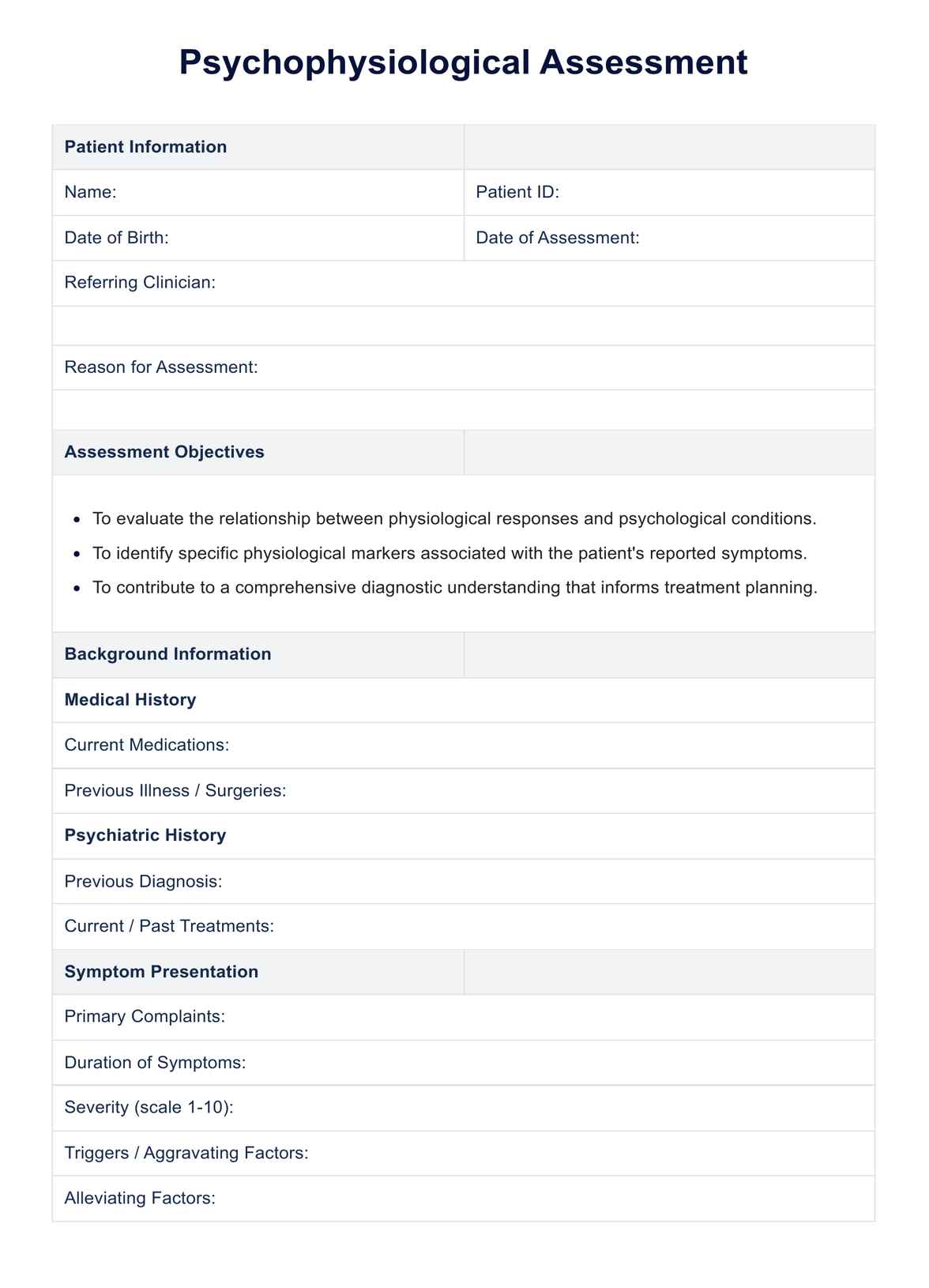
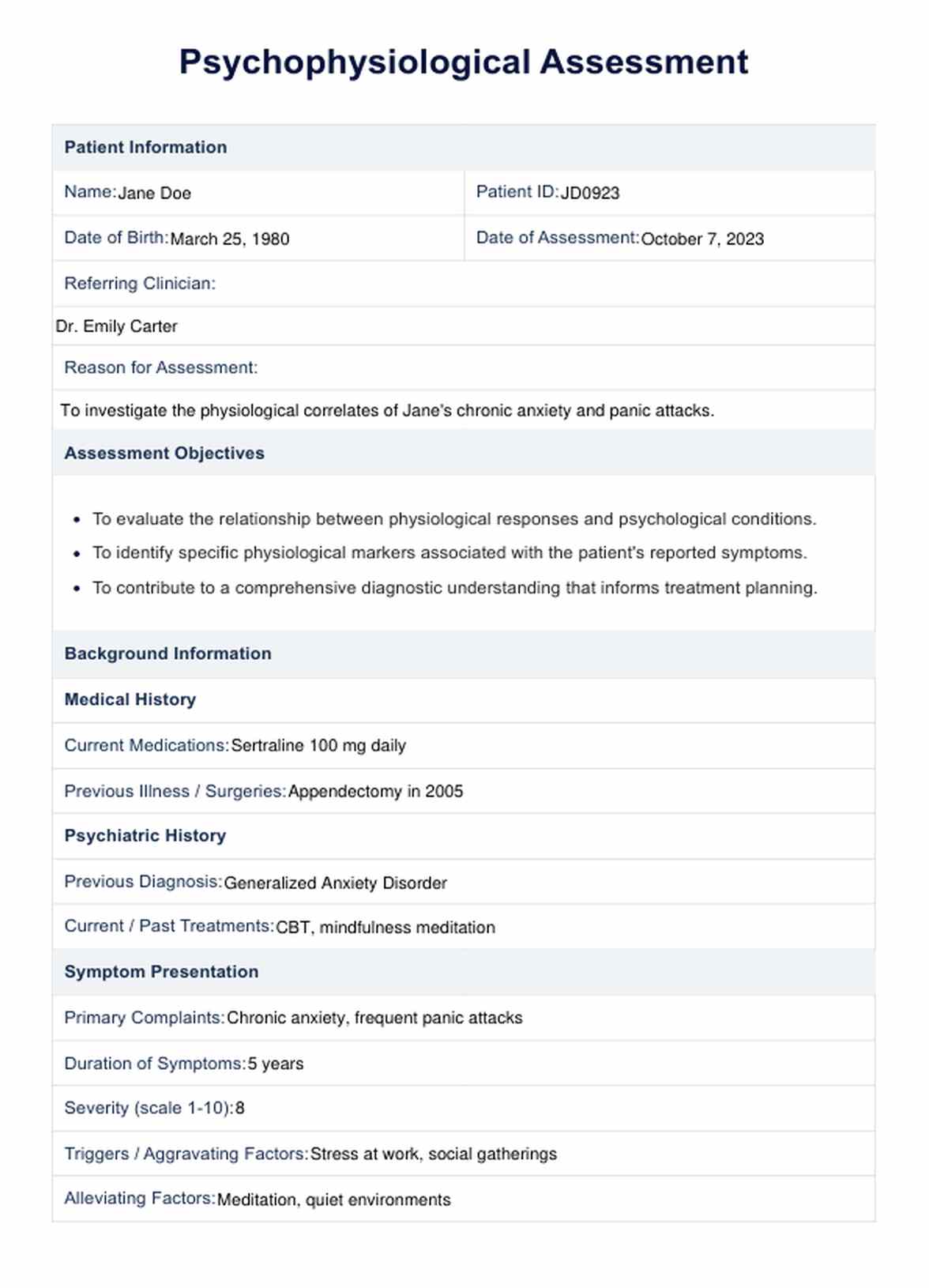





















-template.jpg)














































































